The Stillness After the Storm: Understanding Shock in Early Grief
- Lee Erickson, MA, LPCC

- Apr 4, 2025
- 4 min read
Updated: Sep 1, 2025
By Lee Erickson, MA, LPCC
Dear Gentle Reader,
When someone we love dies, the world doesn’t just change—it stops. Time seems to distort. Familiar things feel foreign. And in those early hours, days, or even weeks, we may find ourselves in a strange, suspended state. We may feel nothing at all—or everything, all at once. This is shock.
Shock is the body and mind’s built-in safety mechanism. It’s not a sign that we’re doing grief “wrong”—it’s actually a sign that our system is doing its best to protect us from what feels impossible to hold all at once.
In the beginning of grief, shock can take many forms:
Numbness — feeling disconnected, as if watching your life happen from the outside
Denial or disbelief — “This can’t be real,” or, “I just saw them yesterday”
Memory gaps — forgetting details, conversations, or how time has passed
Physical symptoms — fatigue, dizziness, racing heart, or loss of appetite
Functioning "too well" — making arrangements, helping others, or returning to work without feeling much at all
Sometimes people feel guilty for not crying right away, or for functioning better than they expected. But shock often acts like a cushion—it softens the blow until we’re ready to feel more of the weight.
Many years ago, I had a client come to therapy not long after the death of a child. She was in shock—shut down, flat, and unable to access her grief. I gently wondered aloud if maybe she wasn’t quite ready to begin the therapeutic process. Her spouse had started therapy twice a week and was diving into the work, but she had been with the child when they died. The trauma of that moment, coupled with the shock, was protecting her from emotions that were simply too much to bear.
I told her I’d be honored to walk with her whenever she felt ready—but that we might need to wait until the shock began to soften. At first, she was angry. She felt pushed away, and it triggered the very pain she was trying to outrun. A month later, she called me back.
She began her process in earnest. She did beautiful, honest work around her loss. And later, she told me she was grateful she had waited. That in the beginning, she had wanted someone to fix the grief—but she hadn’t yet realized she needed time and space to move through it herself.
Grief is not a linear process. Shock may lift slowly or come and go in waves. You may feel moments of deep sorrow and then suddenly go numb again. This, too, is normal. It's your nervous system regulating what you can take in.
If you’re in this early phase of grief, I want you to know:
You’re not broken.
There’s no right way to grieve.
Feeling nothing is a feeling.
You will begin to feel more when your body and spirit are ready.
Sometimes the hardest part of early grief is that the world moves on—people return to their routines while you remain suspended in yours. If that’s where you are, you’re not alone. Give yourself permission to be exactly where you are.
This space is here to walk with you through the silence, through the numbness, and eventually, through the thaw. There’s no rush. You’re doing it—even when it doesn’t feel like it.
With care,
Lee Erickson, MA,, LPCC
Companion Writing Prompts:
Exploring the Role of Shock in Early Grief. Grab a notebook and write some thoughts about the prompts listed below. This writing is for you. It is sometimes helpful to but down your thoughts now so you can look back later and reflect on how you have changed. I won't always feel like this.
When the world stopped…
Describe what you remember (or don’t remember) about the hours or days after your loss. What felt real? What felt surreal? What details stand out?
I thought I would feel ____, but instead I felt ____...
Write about what surprised you about your early grief responses.
What emotions—or lack of emotions—showed up?
The things I did on autopilot…
List or describe some of the things you managed to do during the early days of your loss. What was holding you up, even when you felt like you might fall apart?
My body remembers…
Tune into your physical body. What sensations, memories, or reactions still live in you when you think back to that time?
If I could speak gently to myself in that early stage of grief, I would say…
Imagine your current self sitting beside your past self in those first few days or weeks. What would you offer? What would you not try to fix?
Disclaimer: The content shared here reflects my personal thoughts and professional insights, but it is not therapy. If you are struggling or in crisis, please call 911, go to your nearest emergency room, or dial 988 in the U.S. (Suicide & Crisis Lifeline). If outside the U.S., please seek local emergency resources.




Comments